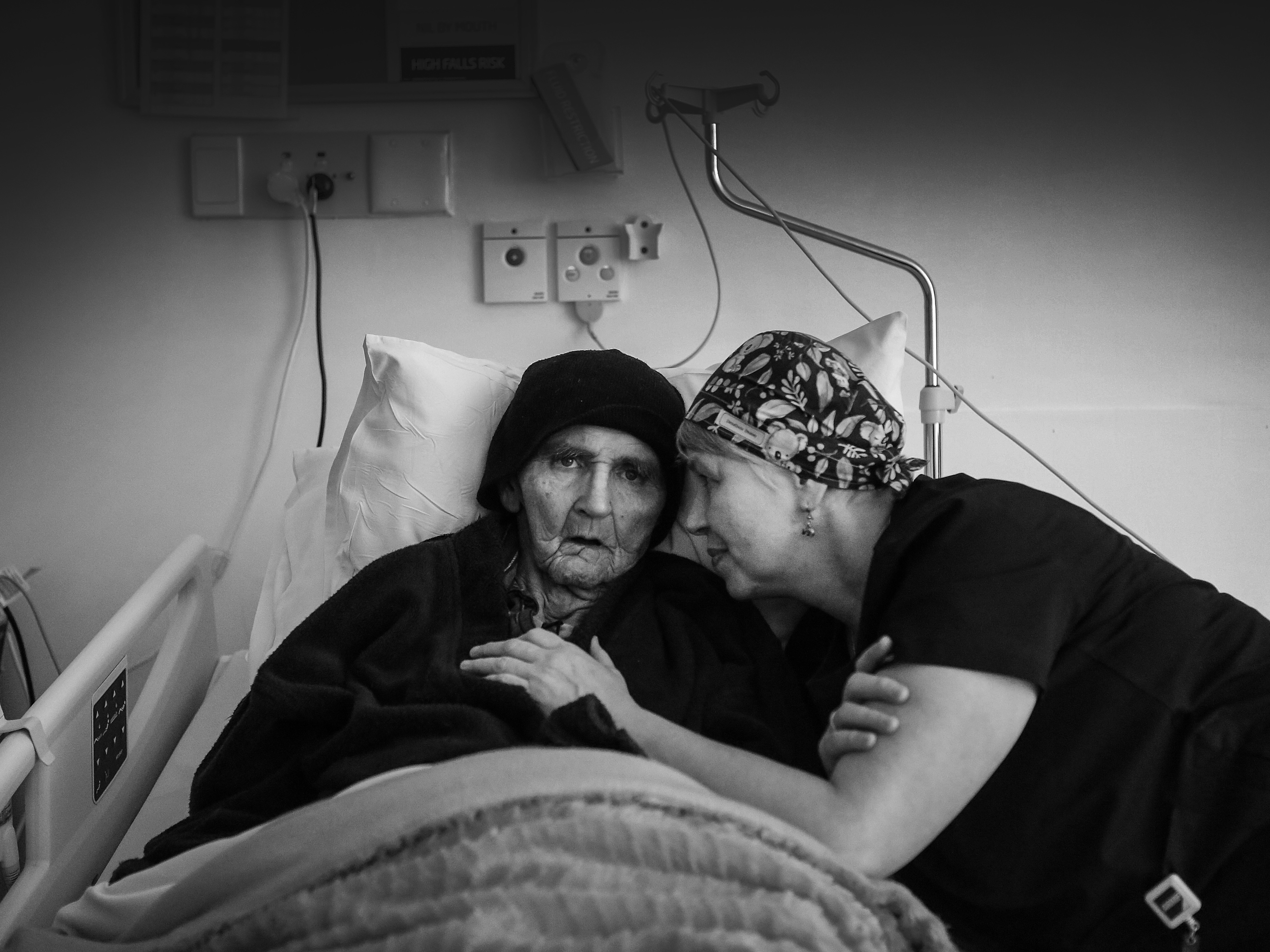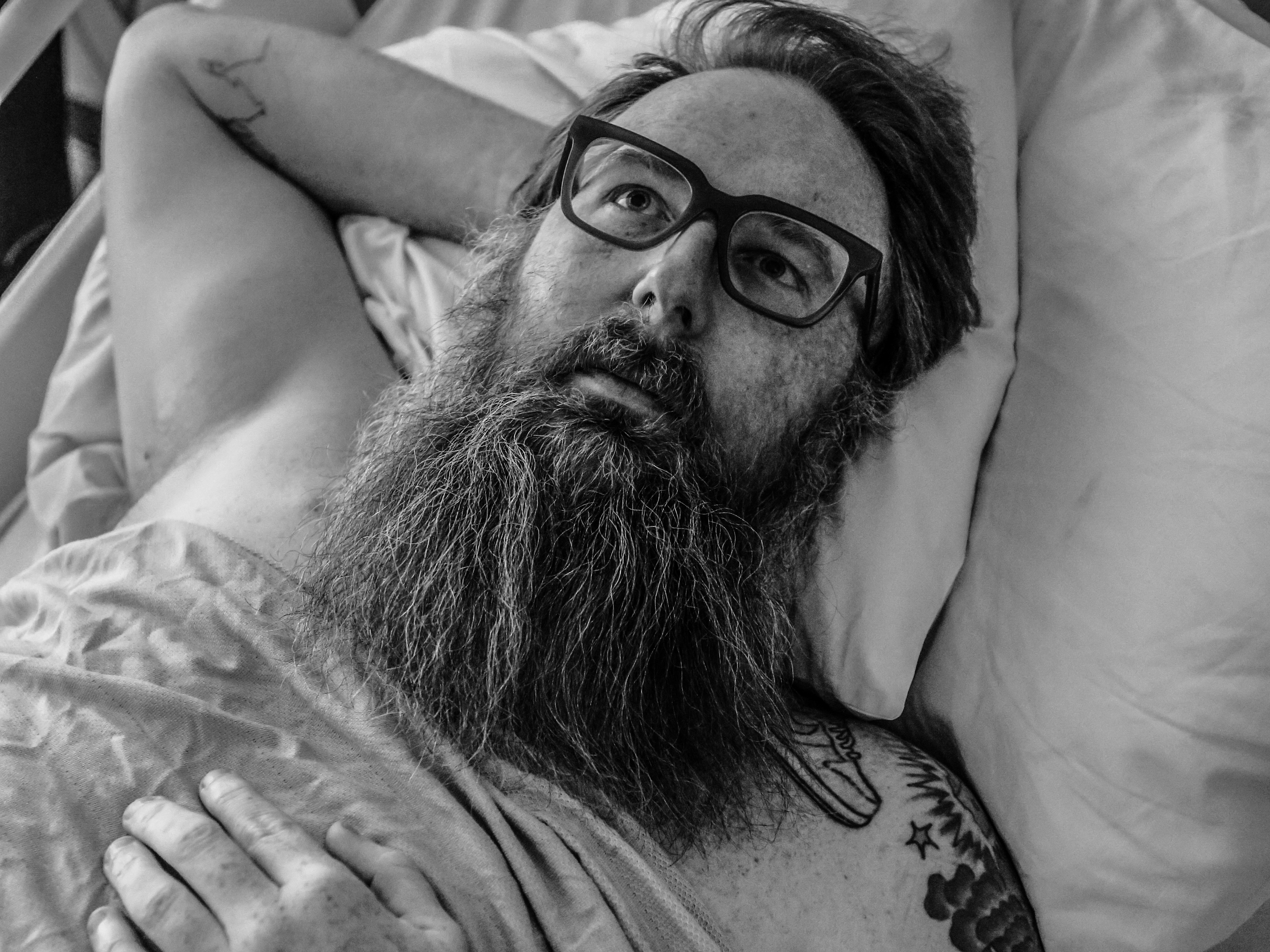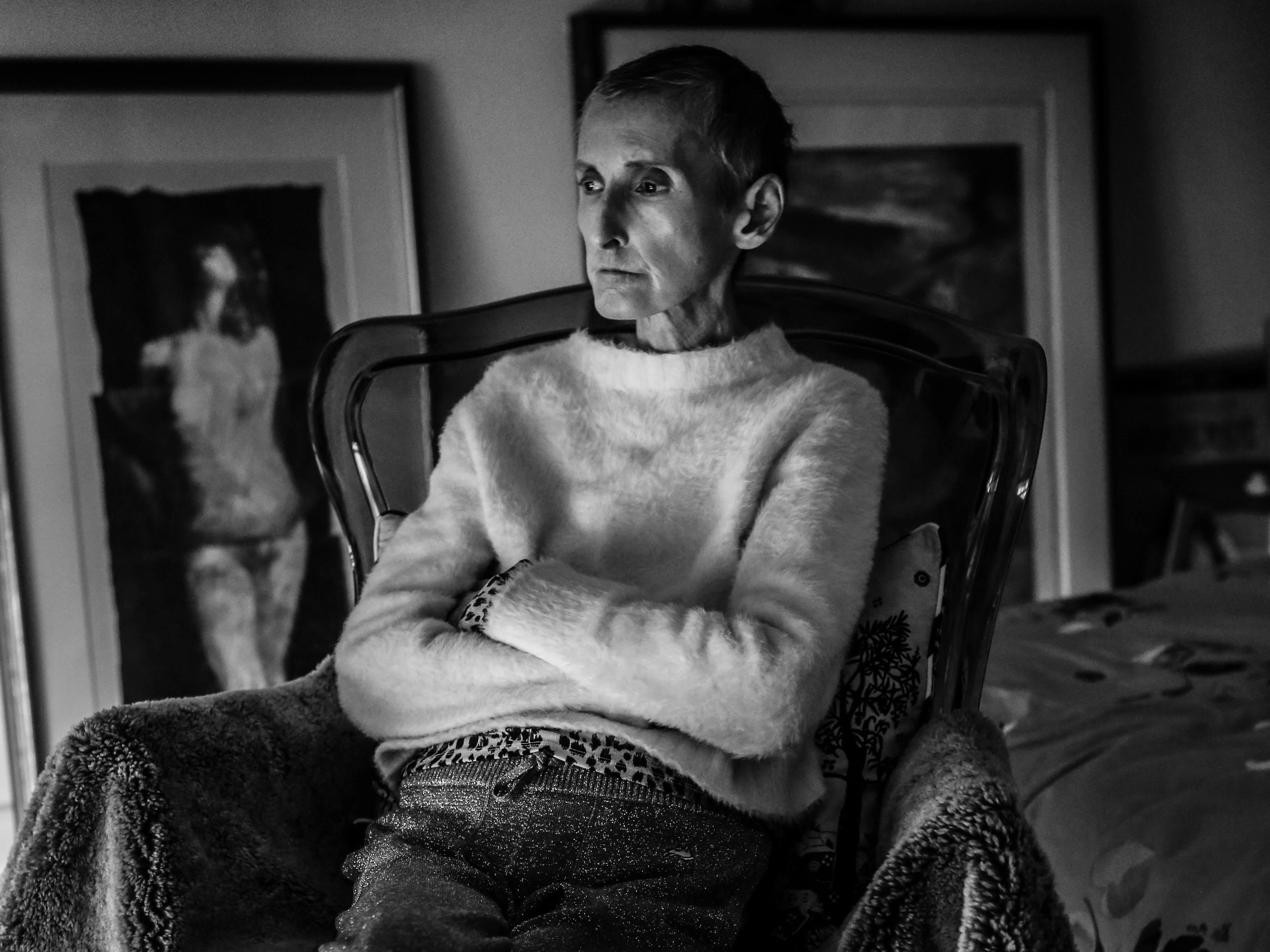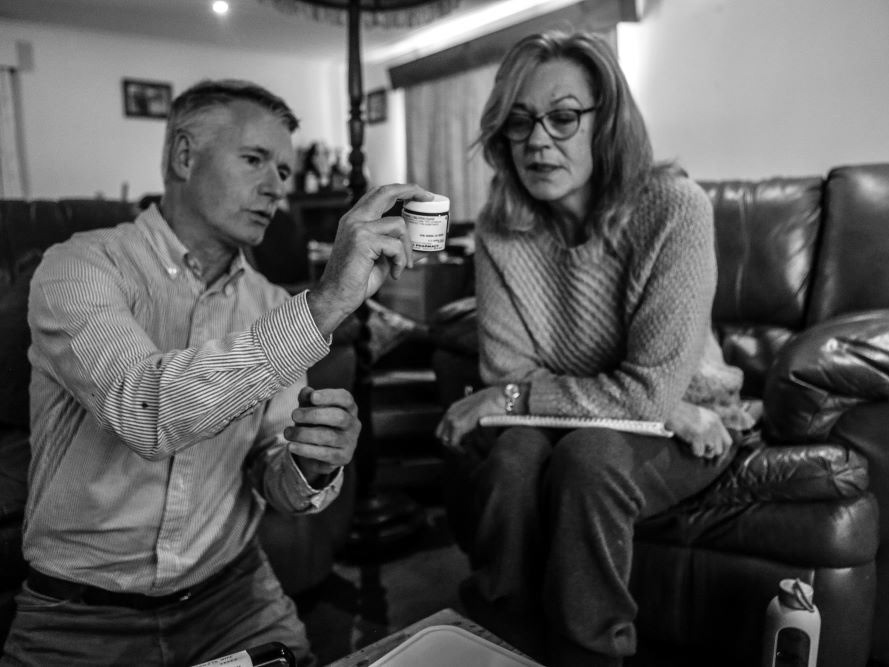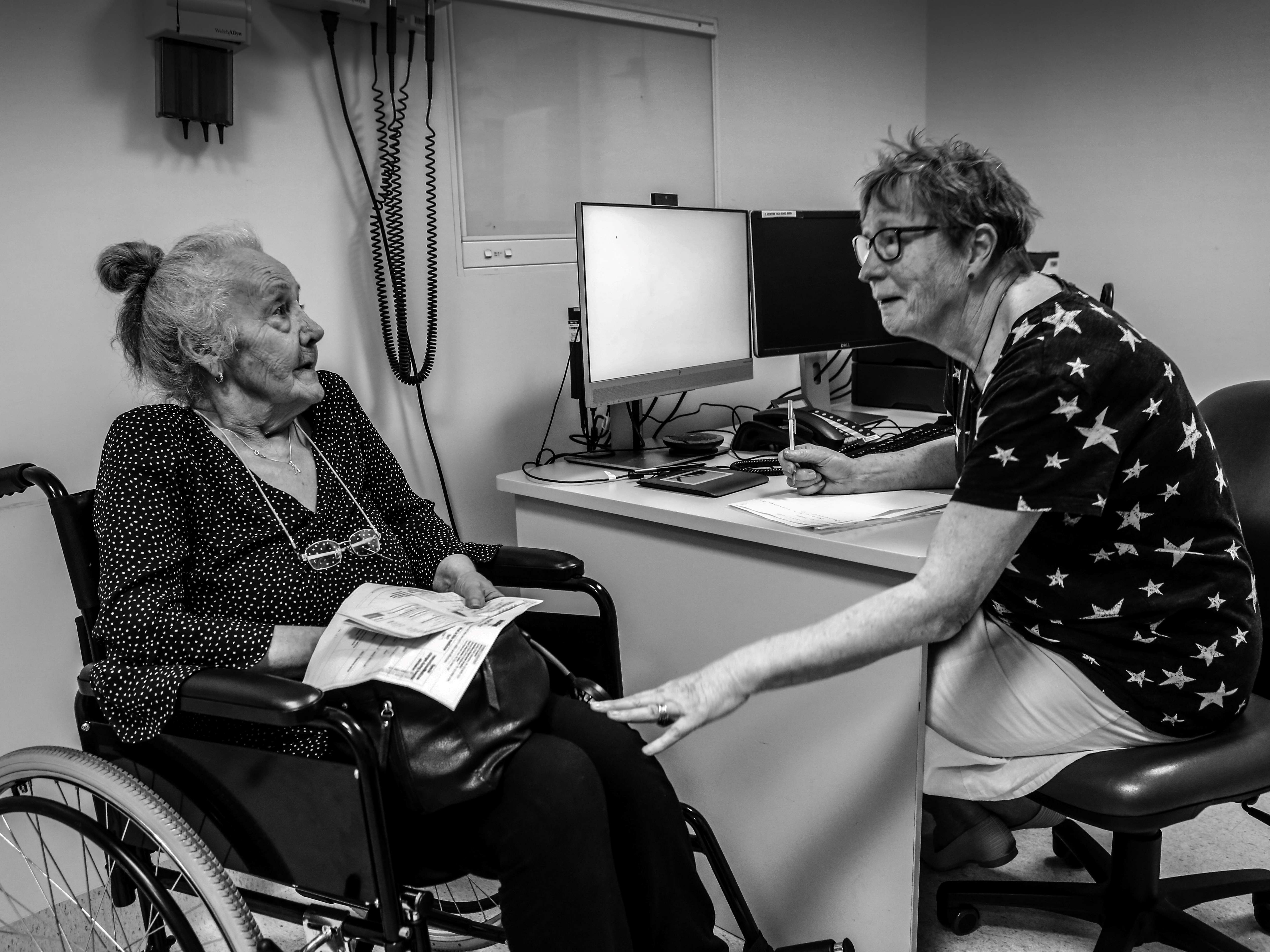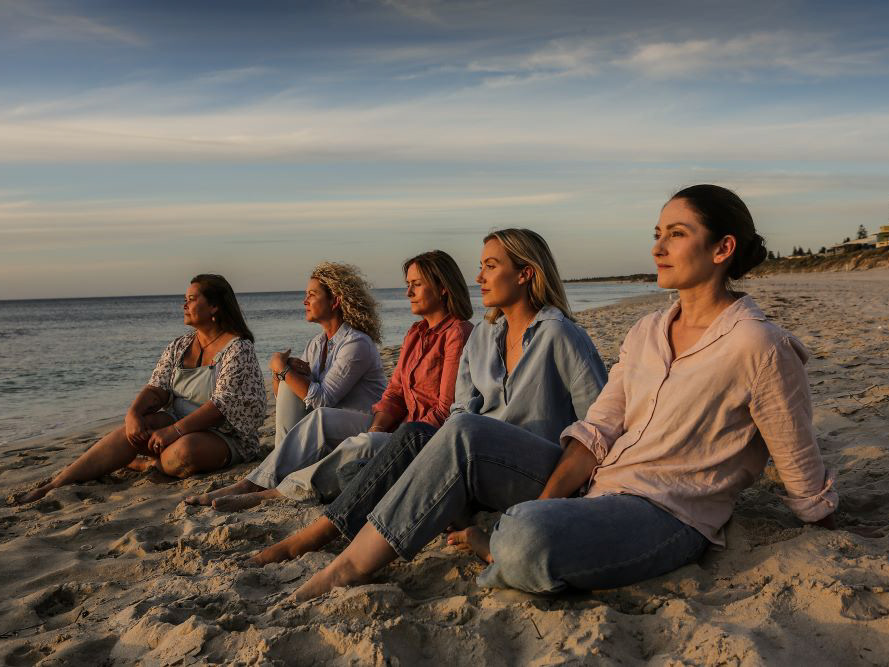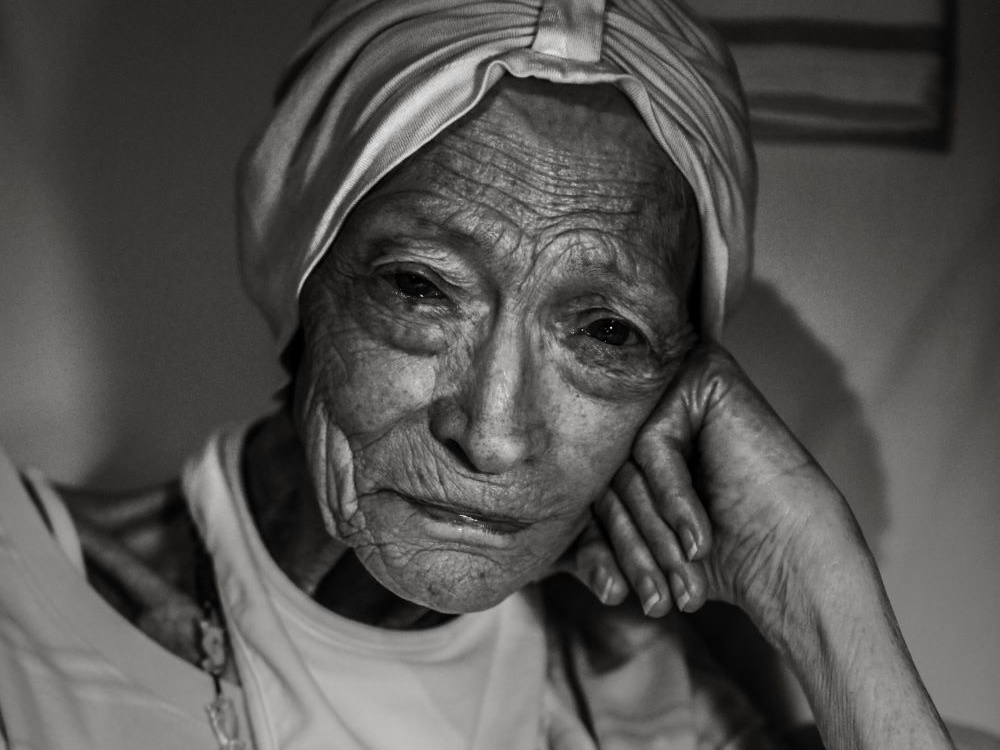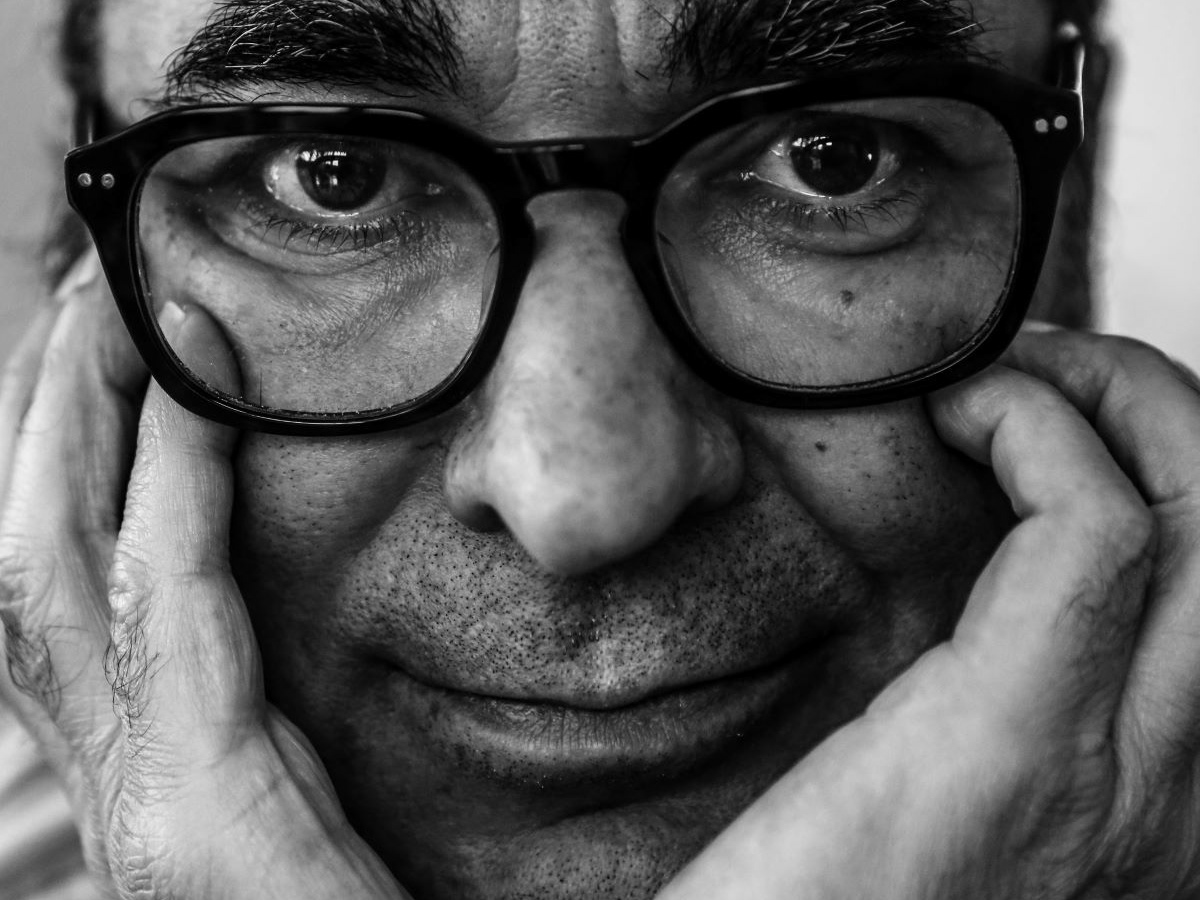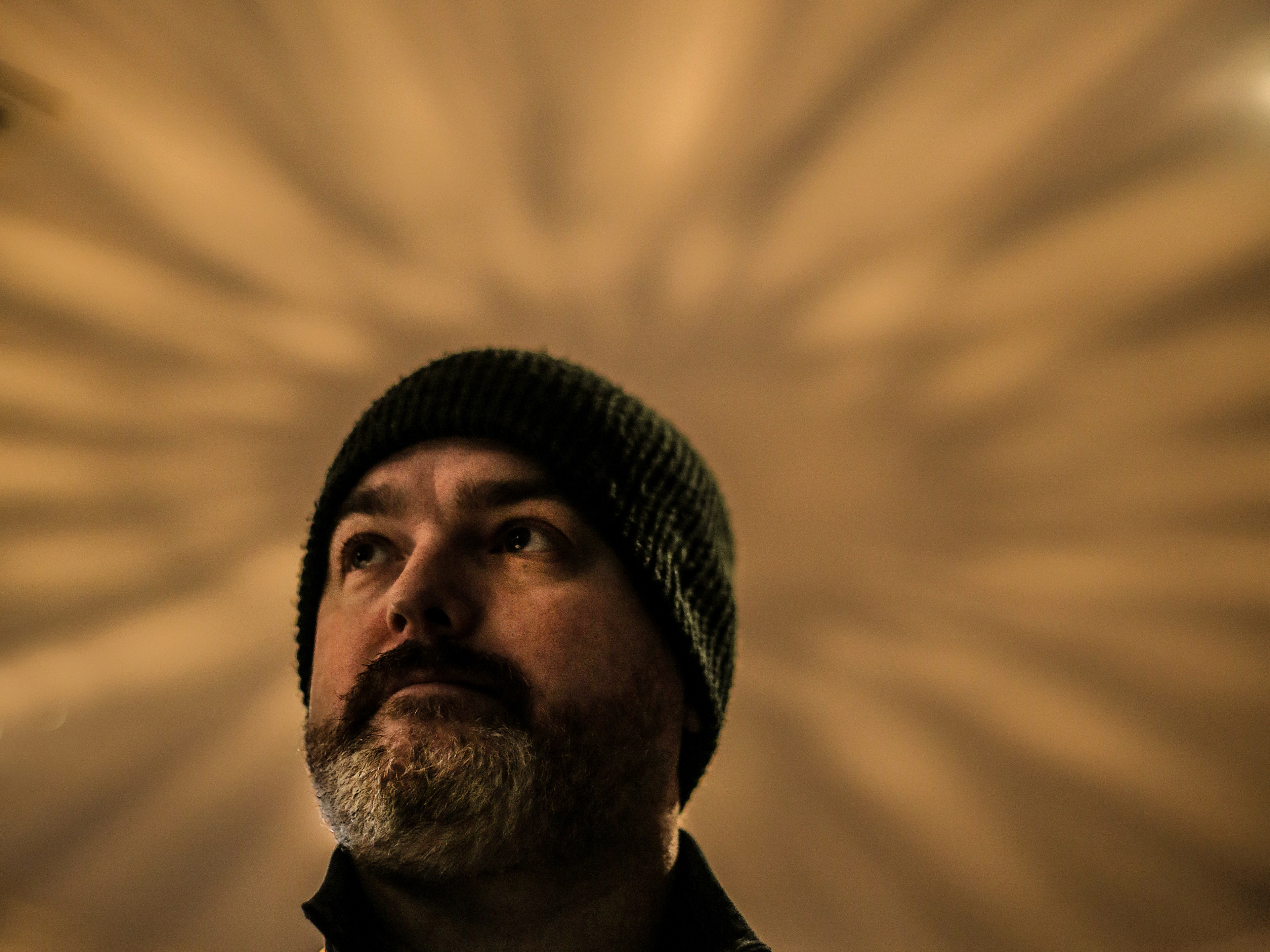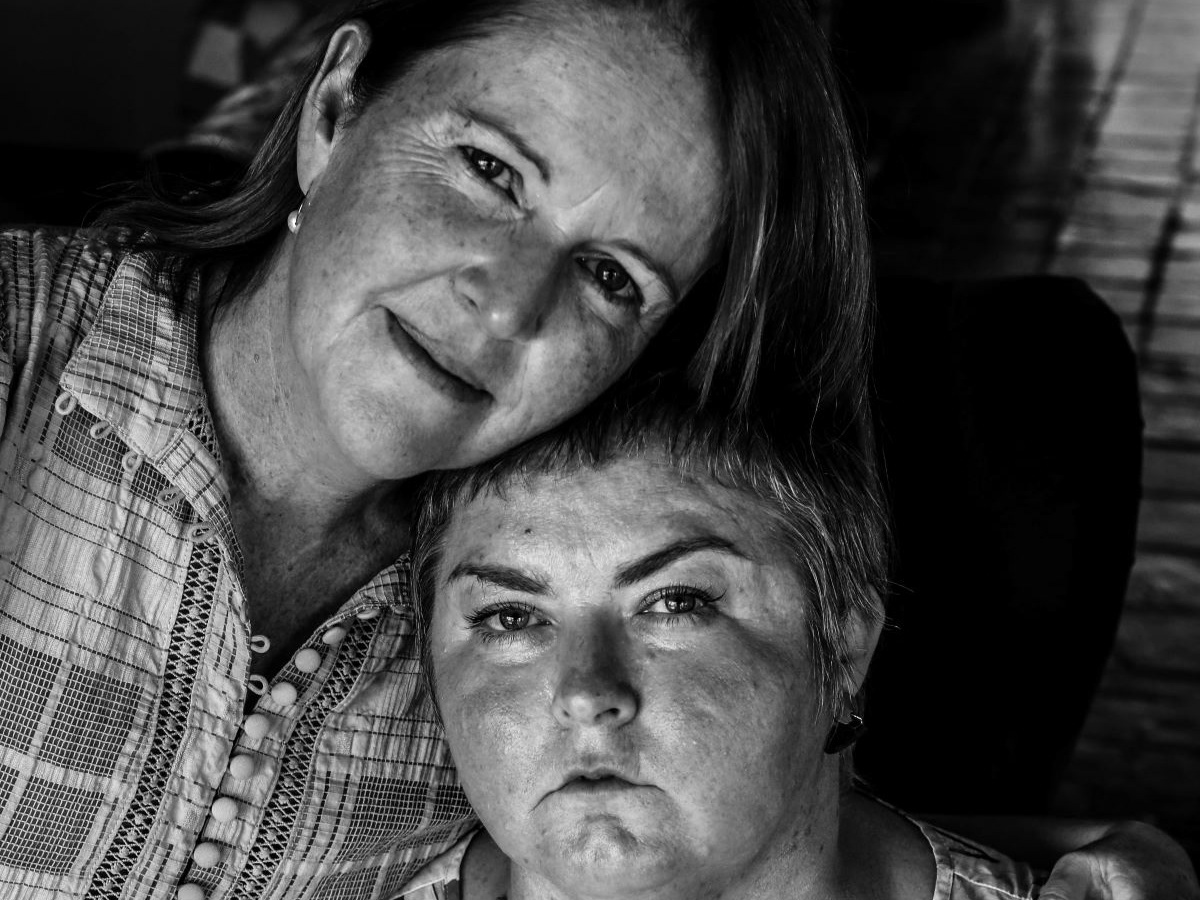Nigel Taimanu came to Australia for a better life in 1997. “There was opportunity here that we didn’t have in New Zealand,” he explained.
For the next 20 years he worked as a truck driver, the last 18 months driving road trains as a fly in fly out worker based in Newman in the Pilbara region of Western Australia.
"It's about 1200 ks north of Perth.," Nigel said. "I enjoyed the freedom of being on the road, the people and the camaraderie."
It was there that Nigel met Kath.
“It was chemistry," Kath said. "With Nigel, the exterior is tough but he’s a real marshmellow on the inside."
The fly in fly out lifestyle suited the couple well enough. But then in late 2022, Nigel noticed a lump in his neck. A small hard mass just below the skin. The diagnosis was squamous cell carcinoma, or SCC, a form of skin cancer largely caused by exposure to UV radiation. If not treated, the growth of the cancer can casue serious complications.
“Mine metastasized and went straight into my lymph nodes. I have it in my neck, I've got a little bit in my chest, and I've got it through my abdomen, Nigel said.
His doctors gave him six to 12 months to live.
When he moved back to Queensland to be closer to family, Kath didn't hesitate to follow. Then a few weeks later came the news: the cancer had spread even more.
“All my lymph nodes are now swelling, pushing against vital organs. The lymph nodes in my neck are so enlarged they're now breaking the skin, and also growing internally. They will eventually close off my esophagus, so I won't be able to swallow or eat.”
Nigel couldn’t remember exactly when he first heard about voluntary assisted dying. He thought the subject came up in passing in a conversation with Kath and his mother a few months after his diagnosis.
After he received the news he had only a few months to live, it came up again.
“He wasn’t even sure it was legal in Queensland,” Kath said. “But after the first conversation I went online and found out all about it. I didn't say anything to Nigel then because ultimately it has to be his decision.”
“So we talked about it," Nigel said. "I wasn't sure it was even possible but Kath said 'it is legal, I checked'. In the end it was quite an easy decision to come to. My esophagus is closing, I don’t want to starve to death and I don’t want the people around me to sit and watch me suffer through that.”
The application and approval process for VAD were straightforward.
One of the safeguards built into the process is a requirement that the person is making their own decision and not being influenced or coerced in any way. NIgel remembers being asked on multile occasion whether he was being coerced."That was an easy one to respond to," he said. "The cancer coerced me into this, no one else, just the cancer and the way it's growing in my body and what it's doing to me."
Nigel said he was grateful to have found GP Fabian Jaramillo to be his coordinating VAD doctor, "a great bloke, straight up and down". Dr Jaramillo also agreed to administer the VAD substance for Nigel when the time came.
Nigel chose to die on 1 December 2023, the day after his 60th birthday and one last party for his family and friends.
That morning, Dr Jaramillo asked Nigel a final time if he was sure he’d made the right choice. His answer; an emphatic “yes”.
Was he scared? “Shitless, I'm scared shitless,” Nigel said. “It’s the unknown. I’m scared because I don’t know what comes next. Is there a God? Will I see my father again?
“And I’m scared of leaving Kath behind on her own, leaving my family behind. But I know it’s the right thing to do.”
"I’m scared, too," Kath admitted. "Of the decision, of being on my own. But I’m also relieved that the pain will be over. Because we know the next stage of this disease would be horrendous for him, and for us to watch him go through that.
“I’m so pleased that Nigel is going to be at peace. But the other side of that is I will miss him terribly; all the dreams and things that we were going to do together.
"I will miss the little things like sitting here on the bench , just having our morning coffee together. Rolling over and giving him a kiss good night, telling him how much I love him.
The morning Nigel had chosen to say goodbye was the hardest. “We knew everything we did today was the last time we would do that. And that is a double-edged sword because I know he will be at peace, but it's scary that we, his mum and I, are going to be on our own."
"They will never be on their own," Nigel said. "They've got too many people who love them. All these people here, they are not only here for me, they're here for mum and Kath as well. And that's why we asked them to come so they won't be alone.
"The people that we know in our lives have all supported what I'm doing. They will be strong enough to watch me do it – or maybe not watch me – it's their choice. I think I will be okay because the ultimate goal is to stop the suffering of everyone involved.
“We are so proud to be a part of this story, to let people know that this is an option that people have to let their loved ones go, in their way, without having to suffer right to the end," Kath said. "It is so important to get the message out."
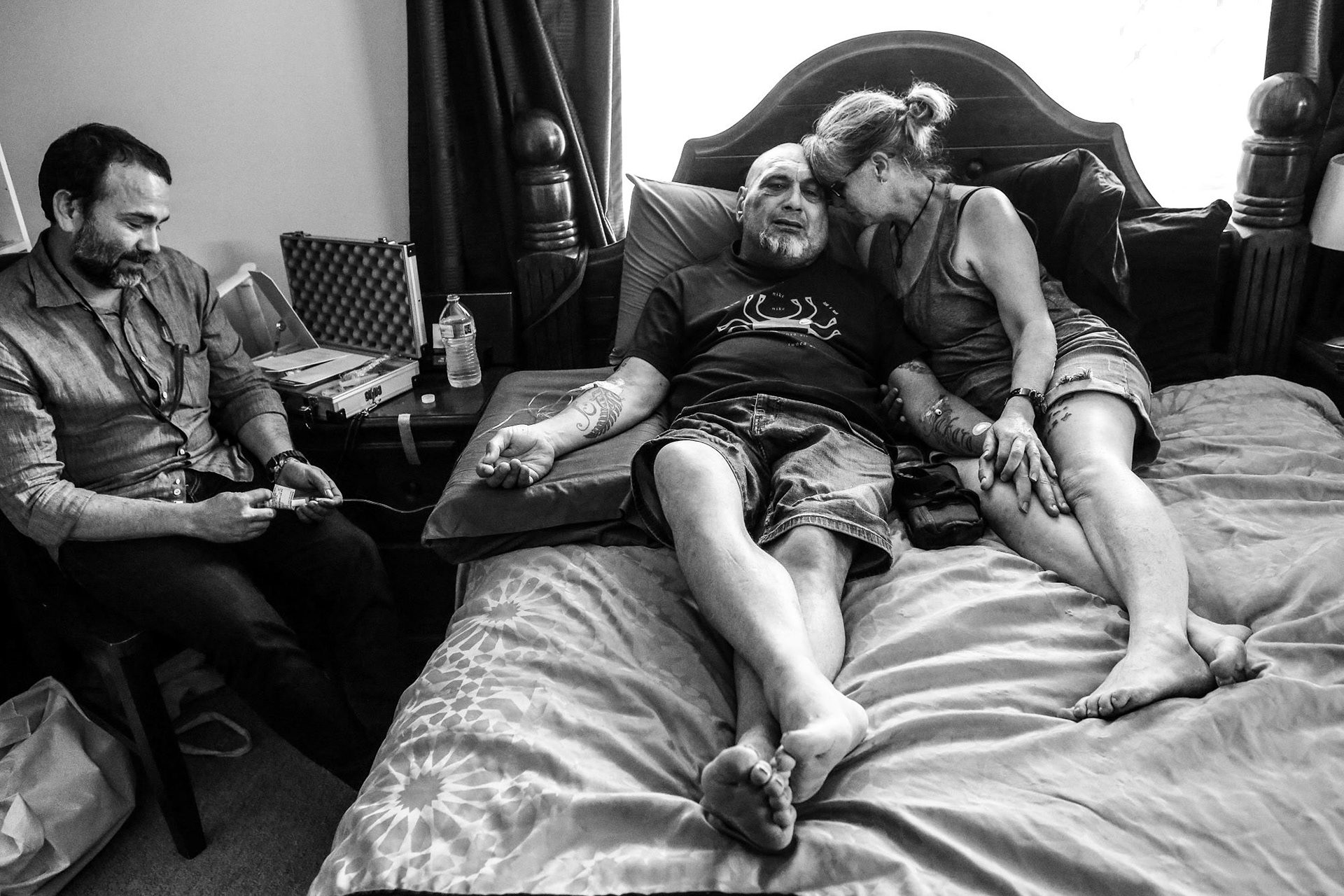
Nigel died peacefully that morning in his bedroom with Kath by his side and family and friends in the next room.
Dying at home where family and friends could hold vigial - something considered important in Maori culture - was a comfort for all.
"One thing that gives me a lot of peace is knowing he's here in our home," Kath said. "It gives me peace because his spirit doesn't need to find its way home, he is already there. "

